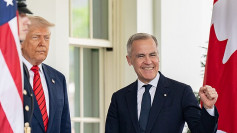The Department of Homeland Security (DHS) faces legal pressure from a conservative political research organization, The Heritage Foundation, over its decision to grant Prince Harry entry into the United States, despite his open admission of past drug use. This information emerged amid inquiries into the prince's 2020 visa application, following detailed accounts of substance use in his popular memoir, "Spare."
In his memoir, which has enjoyed a 13-week stint on The New York Times Best Sellers list, Harry divulged experiences with cocaine, marijuana, and psychedelic mushrooms. He spoke candidly with Anderson Cooper during a 60 Minutes special, warning against casual drug use, but suggesting their potential therapeutic benefits for those dealing with intense grief, loss, or trauma.
This candid revelation might plunge the prince into troubled waters, as under U.S. law, confessing to drug use could lead to visa application rejection.
The Heritage Foundation initiated a lawsuit after being denied access to information following their Freedom of Information request. As a result, they're seeking court intervention to force DHS to disclose how Harry addressed his drug use history on his visa application.
Today, both parties will make their case before a federal court in Washington, DC. Harry will not attend the proceedings due to his involvement in another court case in London. The date for the visa case decision remains unclear.
The royal's recent return to the UK was marked by reported estrangement from his family, following the revelation of past family tensions in his memoir.
As this legal dispute unfolds, experts weigh in on the potential implications. Neama Rahmani, a former federal prosecutor, told Page Six that admitting to drug use usually makes one ineligible for entry into the U.S. However, attorney James Leonard suggested that without any criminal charge related to drugs or alcohol, or a judicial finding labeling Prince Harry as a habitual drug user, his memoir's disclosures should not cause any issues.






